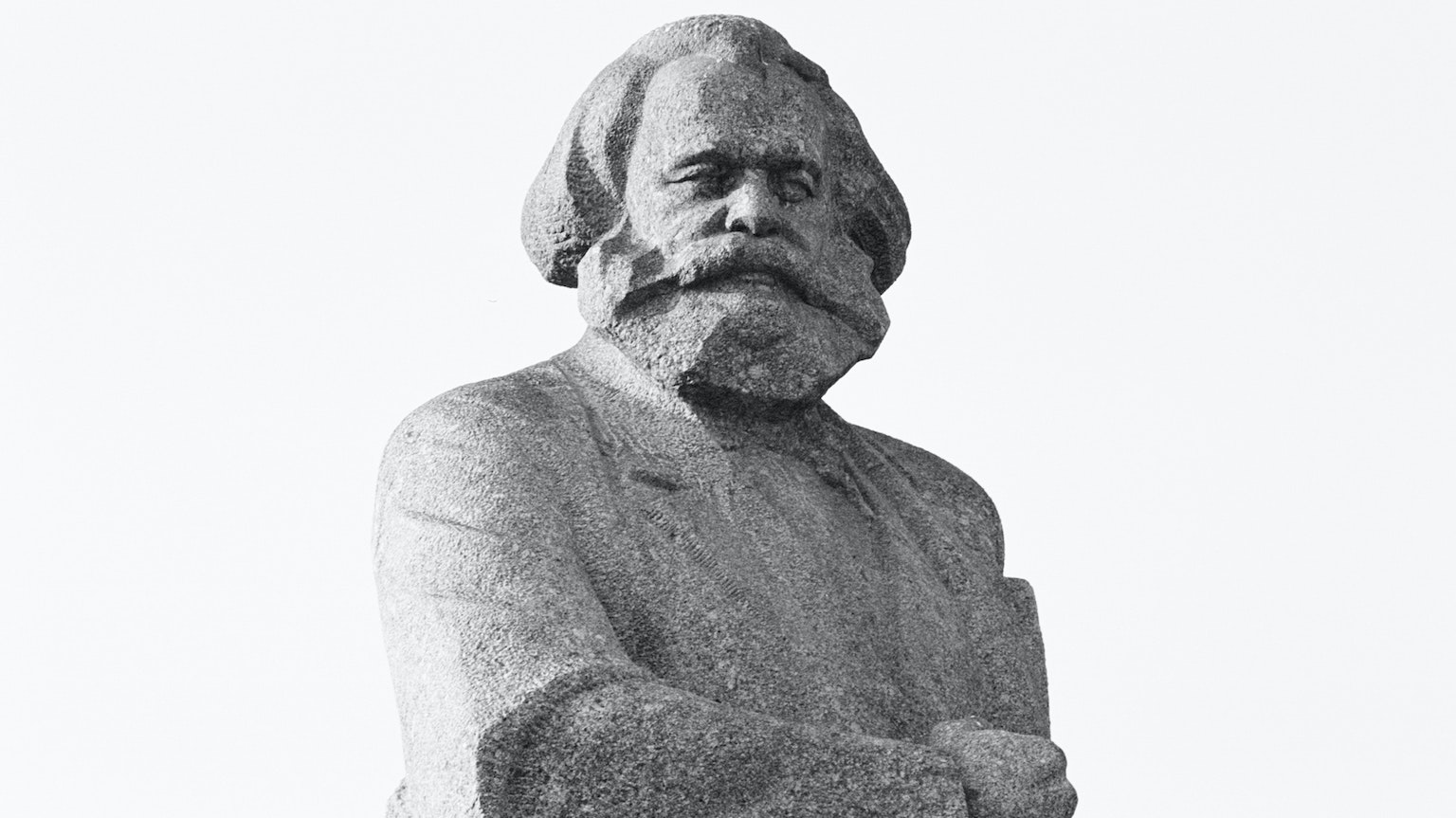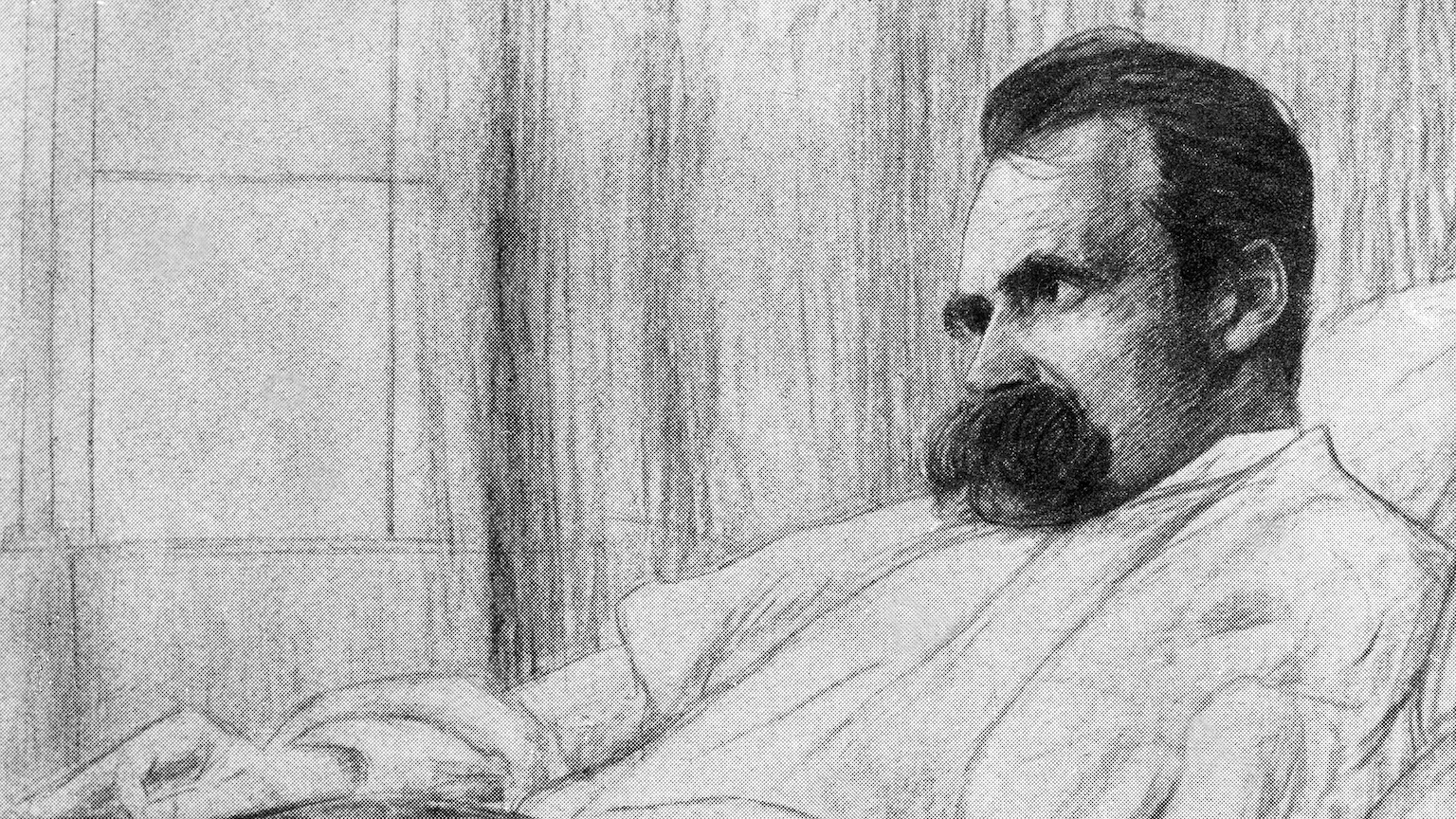Socratic problem: How Plato and other Greek writers invented Socrates
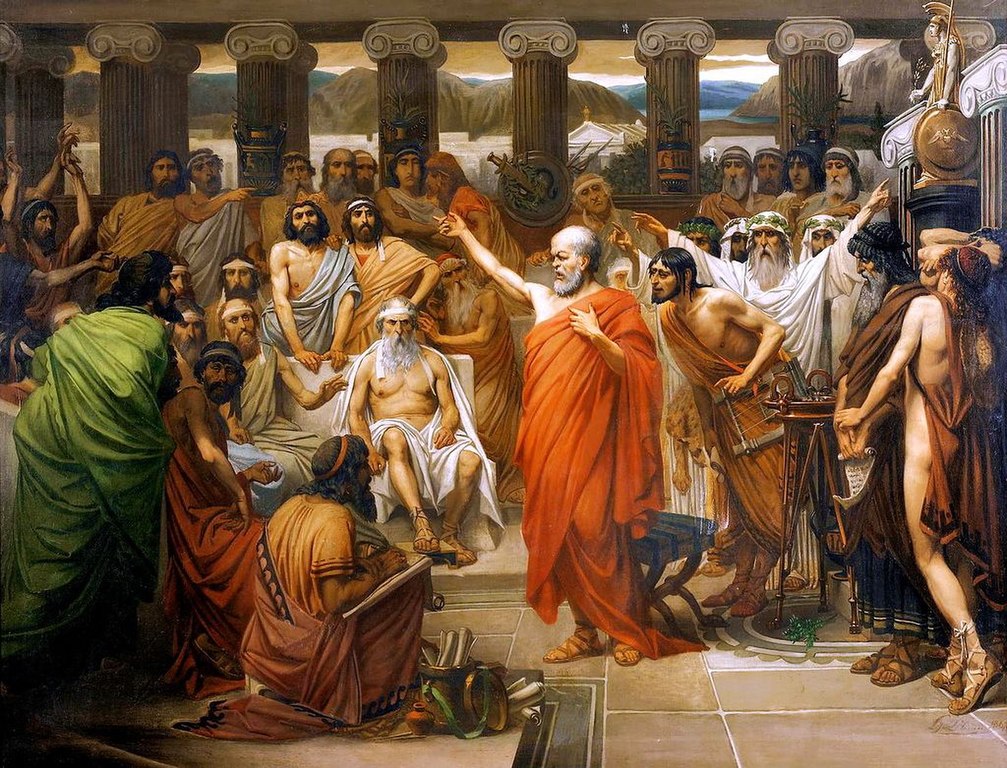
- Socrates left no writing of his own, but many of his ideas were incorporated into dialogues written by his students.
- By identifying commonalities between these dialogues, we might be able to ascertain what Socrates was like as a person.
- Attempting to solve the so-called “Socratic problem” will help us better understand the history of philosophy in ancient Greece.
Arguably no other philosopher has made a greater impact on philosophy than Socrates. (Okay, some people might argue with it.) He was the teacher of Plato and had an influence on Aristotle. He developed the Socratic method, a form of argumentative dialogue whereby two or more individuals propose and contest each others’ ideas. After his death, he became a central figure in the history of ideas.
These are impressive feats, especially when considering Socrates accomplished them without leaving behind a single piece of writing. A talented orator, Socrates preferred to share his ideas with other people through conversation rather than write them down on a piece of papyrus. Had those same ideas fallen on deaf ears, the world might have forgotten this idiosyncratic thinker. Fatefully, some of his students had the foresight to do that job for him.
As a result, Socrates is remembered mainly through the writing of contemporaries like Plato and Xenophon. From a philosophical viewpoint, their texts offer irreplaceable wisdom on subjects such as love, justice, and governance. From a historical viewpoint, however, they pose a major problem: because everything we know about Socrates has come to us indirectly, it is difficult to determine where “Socrates the character” differed from “Socrates the actual person.”
This problem — also known as the Socratic problem — has proven so difficult to solve that it has almost evolved into an academic discipline of its own. “The ‘real’ Socrates we have not,” Dutch philosopher C.J. de Vogel surmised of the Socratic problem in an article from 1955. “What we have is a set of interpretations each of which represents a ‘theoretically possible’ Socrates.”
Just as Socrates’ interlocutors routinely failed to grasp the meaning behind his methodology, so too may a modern reader wonder what could possibly be gained from solving the Socratic problem. By identifying key differences between different interpretations of the same personality, we can learn how Socrates’ followers built upon their teacher’s legacy and, more importantly, where they diverged from it.
Plato and the Socratic problem
The version of Socrates that most of us are familiar with is the Socrates that is found in the dialogues of his disciple, Plato. Of the 35 dialogues Plato wrote in his lifetime, Socrates serves as the principal character in all but one, Laws. The characteristics that we associate with the philosopher today — including his unwavering trust in reason and devotedness to the truth — are placed front and center in these philosophical texts.
Plato’s version of Socrates is often treated as a stand-in for the real Socrates, and there is a reason for that. Plato met Socrates when he was 20 years old and quickly became one of his most devoted followers. Some sources describe Socrates as a “family friend,” while others state Plato was present at Socrates’ trial. Of all the writers that worked Socrates into their texts, Plato was by far the most successful, presenting an individual who was truly worthy of the praise he has received.
That is not to say Plato’s interpretation of Socrates can be accepted as historically accurate. Far from it, actually. Over the years, academics have raised several concerns about the dialogues. First and foremost, several of them appear to have been based on events that took place before Plato’s own birth, meaning he must have relied on external sources to reconstruct his teacher’s conversations.
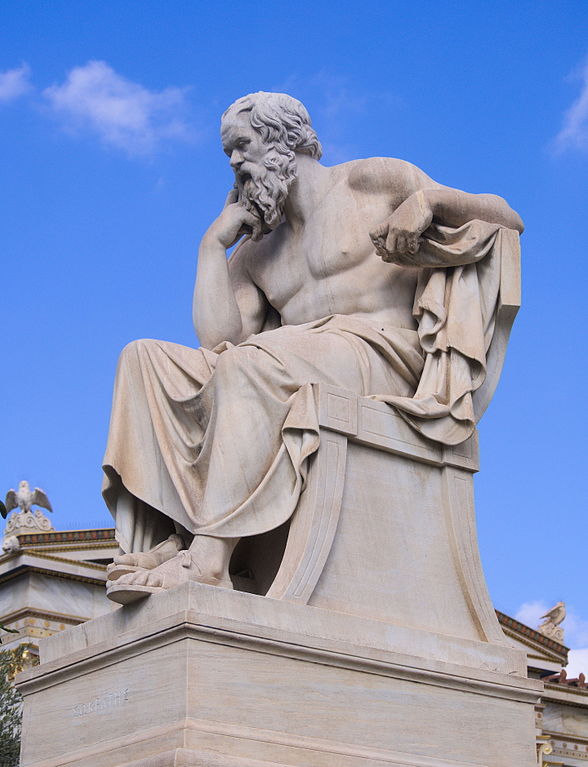
It also does not help that the character of Socrates changes from text to text. The philosopher might make one claim in one dialogue, only to refute that same claim in another. Inconsistencies like these led Plato scholars to separate his early dialogues from his later ones. In the early dialogues like the Gorgias, Socrates is far more concerned with dismantling his opponent’s arguments than he is with providing ideas of his own, his only axiom being “I know that I know nothing.”
In the later dialogues, that saying slowly loses all meaning. In the Republic, Socrates discusses at length what his ideal society would look like, from the organization of its government to the types of poems that poets were permitted to publish. This iteration of Socrates is, admittedly, a far cry from the person Plato originally introduced us to — a contradiction that led more than one reader to accuse Plato of using Socrates the character as a mouthpiece for his own philosophy.
Whether Plato actually used Socrates as a mouthpiece is hard to say. What is certain, however, is that the philosopher’s disciple lived and worked during a time when people did not strive to separate fact from fiction like we do today. In stories, historical figures were often placed side by side with the gods, and Tartarus was as tangible a place as Rhodes, Crete, or Thebes. Writers made liberal use of their poetic license but failed to disclose when and where they twisted the fabric of reality.
The plays that killed Socrates
Most of what we know about Socrates comes from just three sources: Plato, Aristophanes the playwright, and Xenophon the historian. Plato’s account may be the most well-known, but Aristophanes’ was the first. His comedy, The Clouds, produced in Socrates’ own lifetime, lampoons the philosopher’s teachings and the seemingly absurd conclusions they often lead to.
The Socrates presented in The Clouds bears little resemblance to the Socrates that we have come to know through Plato and (probably) the real Socrates as well. In the play, Socrates is in charge of an institution of learning called the Thinkery. While the historical Socrates also had a considerable number of students, he never organized them into an official school. Aristophanes’ Socrates also deals with problems that Plato never considers, like measuring the distance of a flea’s jump.
The substantial differences between Plato’s version of Socrates and Aristophanes’ version have led scholars to suggest that the Socrates from The Clouds is not so much a caricature of the historical figure as he is an amalgamation of different philosophers and schools of thought that had taken root in Athens at the time that the play was created, including people that Socrates debated in Plato’s dialogues.
Aristophanes presents Socrates in a negative light. In The Clouds, the philosopher and his disciples are treated like bums, dodging responsibility to ponder questions that, while difficult, are ultimately of little consequence to the way people live their lives. In other plays, the philosopher appears as a more sinister figure. In The Birds, for instance, characters mention an “unwashen Socrates” who “conjures men’s sleeping souls to wake.”
These depictions were as dangerous as they were misleading. In Plato’s Apology, a dialogue that is centered on Socrates’ trial, the philosopher accuses Aristophanes of slandering his reputation around Athens, enabling jurors to sentence him to death for defaming the city’s gods and corrupting its youth. But since there is no historical evidence for this outside of the Apology, Stephen Halliwell — a professor of Greek at the University of St. Andrews — says this accusation should be taken with a grain of salt.
Socrates’ final lesson
Xenophon, like Plato, was but an infant when The Clouds was first performed, and the general-historian did not become familiar with Socrates until the latter was already an elderly man. Despite their infrequent contact, Xenophon formed strong opinions about the philosopher, writing in his Memorabilia that “I was never acquainted with anyone who took greater care to find out what each of his companions knew.”
This description of Socrates is consistent with the Platonic dialogues, where he is revealed to have a special knack for disarming even the most deeply rooted beliefs of his interlocutors. But Xenophon also diverges from Plato in important areas. For instance, Xenophon’s version of Socrates is more practical than his Platonic counterpart, advising others on subjects that Plato’s Socrates never mentioned and probably knew nothing about, like personal finances and estate management.
Because Xenophon was a historian first and a philosopher second, scholars initially suspected that his version of Socrates was more accurate than Plato’s. Today, the academic community is more divided. On the one hand, the Stanford Encyclopedia for Philosophy says Xenophon’s dialogues — the texts in which Socrates plays the largest role — cannot be judged “by the same criteria for accuracy” as his history writing. On the other, scholars like Bar Ilan University classics chair Gabriel Danzig maintain that, regardless of genre, Xenophon always strove for accuracy when he discussed matters of public knowledge.
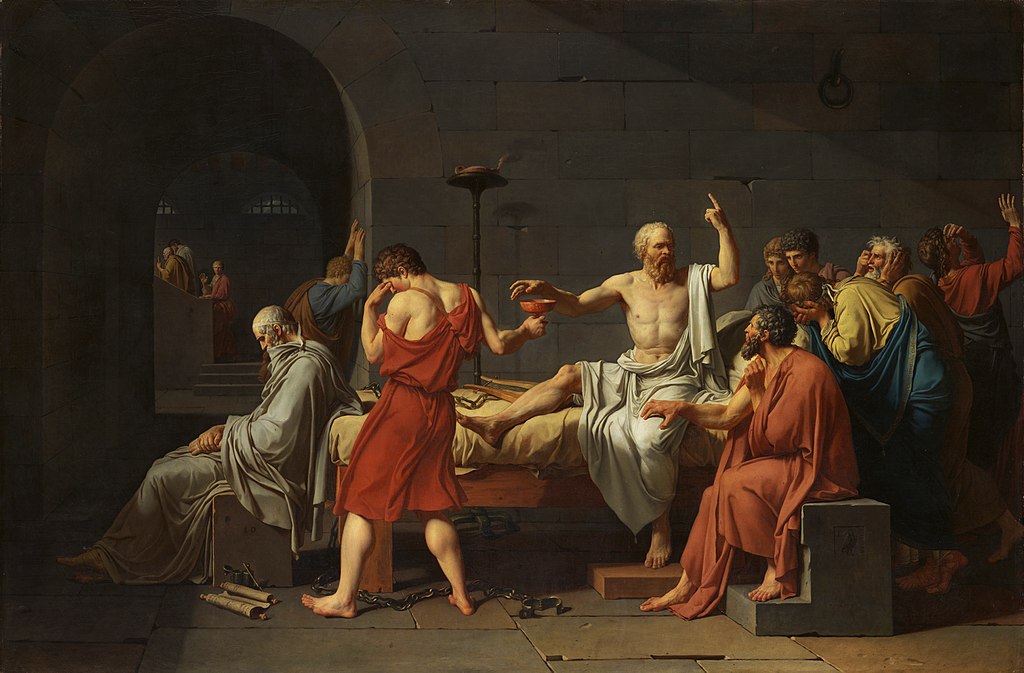
Of all the works that were written about Socrates’ trial in ancient Greece, only three survived. Of those three texts, two were written by Xenophon. Unlike Plato, the dialogues of Xenophon frequently featured a narrator, allowing the author to discuss the setting of the story in greater detail. In his very own Apology, Xenophon states that many Athenians thought Socrates had behaved arrogantly when he was taken before the court, and that his arrogance caused him to lose the trial.
In Plato’s Apology, Socrates also behaves in a manner that could be considered arrogant. While debating Meletus, for instance, Socrates seems far more concerned with humiliating the interlocutor than revealing the flaws in his thinking. The philosopher also remarks that Athens ought not to punish but reward him for his services. Comments like these are not necessarily out of character; in many Platonic dialogues, Socrates often encounters interlocutors who find his incessant questioning conceited at best and disruptive at worst.
Whether Socrates’ actual defense could have held a candle to the lyrical and semantic complexity of Plato’s dialogue hardly matters because every version of this story ends with the same, tragic conclusion: Socrates being forced to end his life by drinking poisoned hemlock. Xenophon, concurring with Plato, was of the opinion that Socrates — an otherwise undefeated orator — lost his trial on purpose to prove, as Danzig puts it, that he “led a supremely happy, even enviable life, and did not suffer in death.”


